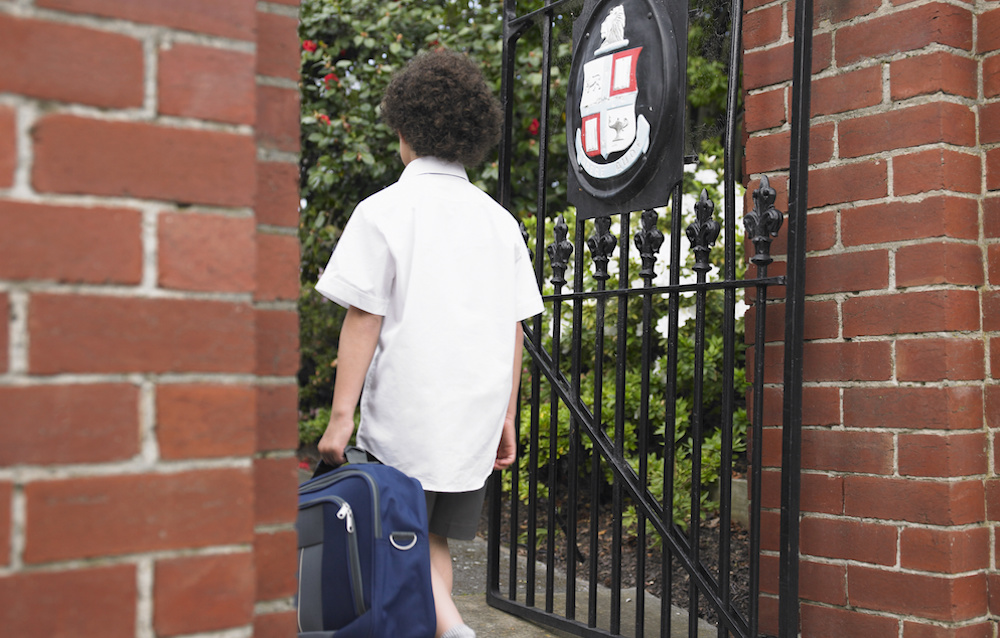Not just for grandma’s fridge: the usefulness of ‘picture day’

It’s an annual event that no-one should avoid, no matter how self-conscious or ashamed they are of their current hairstyle.
 For students, it’s a rite of passage; for parents, it’s a prized record of their child’s growth; for teachers, it’s a bit of a pain to organise and a bit of a laugh to take the staff pic. But for schools, picture day presents a few unique opportunities.
For students, it’s a rite of passage; for parents, it’s a prized record of their child’s growth; for teachers, it’s a bit of a pain to organise and a bit of a laugh to take the staff pic. But for schools, picture day presents a few unique opportunities.
Marketing is the first thing: a chance to create a visual map of the school, all it’s groups and sports teams; competitive success stories and musical triumphs. It’s also a chance to come up with some glossy new staff headshots for the school publication, and any number of prospective-friendly happy snaps to showcase a school’s culture and range of activities.
Fundraising is another opportunity posed by picture day that’s, perhaps, too often overlooked. One option is for schools to arrange to have photos taken that can then be used as part of a fundraising campaign. For instance, if the senior drama class will be performing a theatre production at the end of the year, they could take the opportunity to take ‘headshots’ or cast photos to then use on t-shirts or as merch to sell to family and friends. Similarly, sports teams and school bands could pose for group photos to use on flyers or posters, press releases, social media posts, etc. Having polished, professional photos can make a big difference in reaching a wider audience.
Another fundraising option is to make a commission on photo sales. Different school photographers will have different rates and offers that schools can weigh up but, depending on the size of your school, this could add up quite considerably. Ask your photographer for terms; photo day fundraising could buy a lot of books for the school library. Some companies offer parents the option to order images on a wide range of products like diary covers, key rings, mouse mats and coffee mugs.
Professionalism. In this age of digital wizardry, there is no excuse for poor quality images. School photographers typically take a series of shots of each grouping then scrutinise the results for the best image, using technology to swap heads between images if need be. It is fairly standard now for suppliers to also offer digital versions of all photos, whether they charge extra or provide as a complimentary bonus to the hard copies.
 Aesthetic. While the full-scale, movie star photoshop is somewhat out of the question for hundreds of pupils, you can expect a light retouch of all final shots, such as a clean-up of runny noses, dirt marks on tops, and elimination of unwanted items in the background. Something to ask the photography company about is whether they allow parents to see a version of the photos before buying – in many cases this is standard but for others it’s not part of the process, or they may leave that decision to the school.
Aesthetic. While the full-scale, movie star photoshop is somewhat out of the question for hundreds of pupils, you can expect a light retouch of all final shots, such as a clean-up of runny noses, dirt marks on tops, and elimination of unwanted items in the background. Something to ask the photography company about is whether they allow parents to see a version of the photos before buying – in many cases this is standard but for others it’s not part of the process, or they may leave that decision to the school.
Increasingly, photographers are offering a range of styles for class, team and individual portraits. Schools can select a style that is in keeping with their culture whether traditional or contemporary. Some schools are asking for more casual posing with children sitting on the floor, under a tree or draped around the playground. Others want silly, playful or creative shots, while some schools prefer black and white. For yearbook photos, there may be a theme that can be catered to.
Photographers report that parents want more than just individual portraits of their children, which is good news for schools eager to sell as many photos as possible. Parents often want sibling shots, photos of friendship groups and all different genres of ‘team photos’.
Geography. Innovative learning space groupings are a challenge for photographers; it’s a lot of people to get into one shot. Some suppliers have changed their approach to ease the process and offer the option to photograph students individually then digitally create a class photo. In this way, each student’s face is clear, eyes unblinking, and the group is evenly spaced. It also means that students who are absent on photo day do not have to miss out as they can arrange a makeup session with the photographer.
If schools prefer a ‘real-time’ group photo, where the whole school is lined up on tall benches, as many of us will remember posing for in our youth – this is something run by suppliers in the initial planning stage.
Planning. Ask your supplier to do a site visit before the event so they can be clear about space, layout and best venue according to the lighting. Create a photo day timetable so everyone knows when and where they’re expected. Discuss how many photographers and/or set dressers will be coming along, and what spaces will be utilised.
Clear communication is paramount – between the photographer and the school, and between the school and the parents. Find out what sort of preparations will be required; will the photographers need before-hours access or to have the school hall cleared? What about contingency for a rainy day? Check too what happens if a parent is not happy with the product, is there a money-back guarantee?
The day before.
Remind students that photo day is tomorrow, and explain how they can best present themselves.
In schools without a uniform, some classes agree on a class colour or style; jeans and white t-shirts for example. Schools with uniforms should remind students to have the correct attire.
Encourage students to wash their hair the night before so it will be clean and shiny for their photos. They may like to take a hairbrush for a last-minute groom before the shoot. If your school has a strict dress code, refresh the memories of your students and parents with a note or email.
On the day.
Check that students are clean and neat before they leave the classroom. Encourage them to look at one another to make sure clothing is buttoned properly and faces are free of food smudges.
Let the photographer run the show. School photographers have worked with thousands of children and are experts in eliciting the best expressions.
The ordering process.
Today’s parents don’t want to be bothered with paperwork, they expect to be able to view and order images online, and they also expect to be able to buy digital files.
This is hugely beneficial in reducing the administrative work for school staff, making photo day an altogether more enjoyable occasion.
Top quality images stand the test of timeSchool photos are cherished by students and families which is why photographer Mark Curran stresses the importance of quality, affordability and excellent. Leading Image School Photos was founded to provide the highest quality product at a price families can afford. The Australian company uses only the best quality camera equipment, photo paper and printers to ensure school mementos last for years and years.
“We provide the best quality, best value and we also pride ourselves on our level of service.
Leading Image School Photos has branches in Geelong, Sydney, Tasmania and the Gold Coast. |







